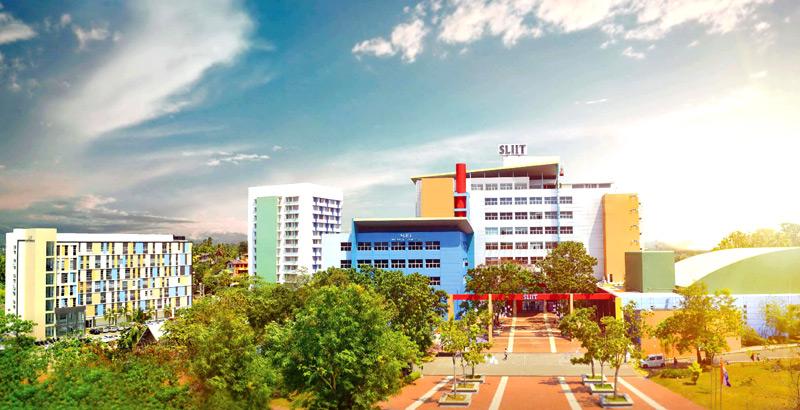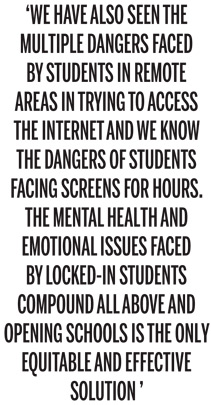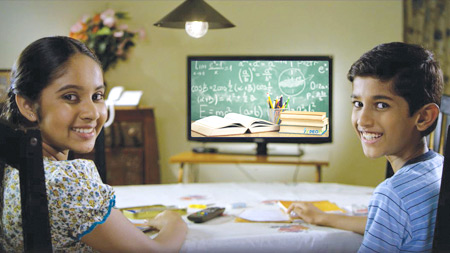
Regional disparity has been one of the key subjects that had been talked about for several decades in Sri Lanka and it even led to two JVP uprisings in the seventies and eighties as well as to LTTE terror.
The popular slogan ‘Colombata Kiri Apita Kekiri’ emerged as a result of this. However, for the first time in Sri Lanka ‘Colombata Kiri Apita Kekiri’ slogan has re-emerged this time around with reference to the education sector due to the over two month long government teachers’ strike that deprives online education for students.

Over 200,000 teachers across the country are involved in the strike, called by the Ceylon Teachers Union (CTU), Ceylon Teacher Service Union, United Teachers Union and several other unions. Teachers in government-run schools withdrew from online teaching from July 12.
Minister of Education Dinesh Gunawardena said the Cabinet Subcommittee appointed to look into the teacher-principal salary anomaly issue had recommended salary revisions through the Budget proposal for 2022.
“The Cabinet has granted approval to pay a monthly allowance of Rs. 5,000 to teachers and principals for September and October 2021 until the Budget proposal is presented in Parliament.”
“In addition, services of teachers, teaching instructors, and principals would be declared a closed service through a gazette notification to be issued before November 20.”
 While the Colombo private schools, international schools, and tuition classes are moving ahead with online classes, government schools especially in the south are yet to conduct classes.
While the Colombo private schools, international schools, and tuition classes are moving ahead with online classes, government schools especially in the south are yet to conduct classes.
The Sunday Observer learnt that government teachers in the Northern Province have set an example by commencing online classes for students defying the ban imposed by the unions.
Online classes in Jaffna resume
“For Jaffna teachers, children’s education is a priority and about 30% of online education has resumed,” an official from the Jaffna Zonal Education office said.
“Due to immense pressure from parents, religious leaders and even students from the ninth grade upwards, a few government teachers in the Jaffna Peninsula have commenced online education,” an official from the Jaffna Chamber said.
“Teachers too are dedicated and want to conduct online classes as they feel this strike is ruining the students’ future and they would lose the competitive education advantage. However, teachers are afraid to defy the Union ban and are conducting classes on the sly,” he said.
He added that all private institutions have commenced online classes.
Southern students left out
While education activities in Jaffna in both government and private schools have picked up, the government teachers in the Southern Province are not resuming classes, depriving the schoolchildren their basic right to education.
The Jaffna Chamber official said the clergy must take an active role in the South as was the case in Jaffna to persuade government teachers to unofficially commence online classes or else there would be a huge education imbalance between the North and South. “Soon it would lead to a new regional disparity in education,” he said.
Cultural norms ignored
Former Secretary Ministry of Higher Education and Director General of the National Institute of Education, Dr. Sunil Jayantha Nawaratne said the boycott of online classes is extremely unfair and will have major negative impacts for the education sector.
He said this also opens up a huge national cultural issue. “Traditionally, Sri Lankans are known to help each other, especially during natural disasters like tsunamis, floods, earth slips and even roadside accidents.”
“Today, not only Sri Lanka but also the world is facing a pandemic with millions of deaths. During such a situation, a strike of this nature by teachers is unacceptable.”
He said strikes or ‘industrial action’ as termed in western countries, do take place all over the world but they are done in a responsible manner. “In Japan, if there is a two-hour strike, the workers make it a point to catch up the two-hours later. But how are teachers going to catch up loss of two months’ education of their students?” he asked.
Private education moves on
Almost 95% of all private educational institutes have commenced classes online without affecting the education of their students.
Managing Director, Wasity Higher Education Institute Kiribathgoda, Piyatissa Rajapaksa said; “Schoolchildren in government schools are being subjected to a grave injustice due to the online education boycott by the Teachers Unions while the students in private and international schools will enjoy a huge education advantage.”
He said all private sector schools along with International Schools commenced online classes as soon as the curfews/lockdowns started. “Hence, they are able to carry on with their normal syllabuses according to schedule.”
However, in contrast, students of government schools, while being hampered due to the lack of internet and digital devices, had another major blow when teachers stopped conducting online classes. “Government schoolchildren have now fallen back on their syllabus and this would be a major disadvantage when normalcy returns.”
He said when it comes to University entrance too, this sharp divide would be visible and it’s a crime by the Teachers Unions to hold back teachers in this manner.
“The Wasity Higher Education Institute has over 5,000 students and 90 teachers, and we have already commenced all our education programs for our students online. We even conduct online classes for Nursery students.”
“We have a few government teachers and they too are very sad about this but are helpless.”
One of the leading degree awarding private education institutes, the Sri Lanka Institute of Information Technology (SLIIT), is also conducting classes online.
 “While we have a 99% attendance for these classes, we have also called for applications from students for September 2021 Intake for our Undergraduate Programs,” an official from SLITT said.
“While we have a 99% attendance for these classes, we have also called for applications from students for September 2021 Intake for our Undergraduate Programs,” an official from SLITT said.
SLIIT offers new students options to select from a vast range of undergraduate programs including Computing, Business, Engineering, Education, Psychology, Nursing, Law, Architecture, Quantity Surveying and Hospitality and Cookery, Humanities and Sciences.
Meanwhile, Deepal Perera, CEO of International Airline Ticketing Academy - Sri Lanka’s first private Airline Training College set up 30 years ago, said he too has commenced online classes. “We cannot let lockdowns affect our students’ education and hence, are conducting online classes.”
He said although the student intake is low, they will be conducting fresh classes for beginners from September 21 as they see a demand for this sector in the future.”
Private sector, TV channels to the fore
Some leading government and private TV channels have come to the fore to bail out students’ education needs by conducting free classes online. Telecommunication providers too have joined this mega CSR initiative. Sri Lanka Telecom Plc (SLT) has agreed to telecast educational content on seven channels on its PEO TV network free of charge as state-run TV stations do not have sufficient airtime on their belts, the Cabinet office said.
Addressing the lack of internet penetration, SLT- MOBITEL, the National ICT Telecommunications and Mobile Services Provider continues to harness the strength of the company’s technology to nurture young learners by providing a platform to access distance education through its flagship Internet Protocol Television service, PEO TV. Children are able to access PEO TV directly through SLT-MOBITEL home broadband, and can also reach households nationwide via SLTMobitel-PEOTV GO.
In its efforts to minimise the disruption in the education system, Dialog Enterprise, the corporate solutions arm of Dialog Axiata PLC, launched the “Dialog Teachers Package” to facilitate uninterrupted online learning island-wide.
While empowering teachers and students to continue their education, Dialog also provides total control to the institution to ensure that its broadband connections are facilitated with website filtering to ensure that the provided data quota is exclusively utilised for educational purposes only.
Supreme TV, Sri Lanka’s latest Sinhala TV Channel has expanded islandwide, joining the fight against C19’s adverse impact on the nation’s education sector.
The Channel has joined the existing TV infrastructure and has hurriedly expanded island wide especially to cater to over 660,000 G.C.E (O/L) students who will now be able to continue their studies uninterrupted by watching the educational content of the channel.
Supreme TV became the first and only channel to dedicate more than half of its airtime and commenced its Supreme Educare project for G.C.E (O/L) students three months ago.
Leading business personality Dhammika Perera has also launched an online portal to offer free education.
Online, not the answer
Although many think that online is the only tool for education, others say that it’s not the perfect solution but a ‘stopgap’ until schools re-open.
“Online education in Sri Lanka is not the answer for education. Online covers only 50% of the education requirement,” Piyatissa Rajapaksa said.
“What about the students’ sports and extracurricular activities such as speech and drama?” he asked. Due to the online switch, many of the students’ skills have lessened and hence, Sri Lanka should soon move on to normal education activities by opening schools.
The children are unable to attend sports meets which build up character and this is really disappointing. “The answer to this is to reopen schools and the key to re-open schools is to expand the current successful vaccination drive among schoolchildren.”
Only schools in 15 countries closed
With the government’s successful vaccination drive targeting the younger generation, many request to re-open schools under health guidelines.
Cofounders, Education Forum Sri Lanka, Dr. Tara de Mel and Dr. Sujata Gamage has written to President Gotabaya Rajapaksa, Prime Minister Mahinda Rajapaksa, Minister of Education Dinesh Gunawardena, and Leader of the Opposition Sajith Premadasa highlighting the urgent need to prepare for the opening of schools.
“With or without a teacher strike, schools in Sri Lanka have been closed for over 18 months due to the ongoing pandemic. Even students who had access to internet-based education through their teachers constituted only half the student population,” Dr. Tara de Mel and Dr. Sujata Gamage said.
“We have also seen the multiple dangers faced by students in remote areas in trying to access the internet and we know the dangers of students facing screens for hours.
The mental health and emotional issues faced by locked-in students compound all above and opening schools is the only equitable and effective solution.”
All global agencies responsible for education such as UNICEF and UNESCO have recommended that schools should be kept open because of the grave consequences of depriving students of long-term, in-person or physical education. Several countries kept schools open with multiple safeguards in place, even during dangerous waves of the pandemic.
Most remain open even at present. Today, there are only about 15 countries where schools are shut. Sri Lanka is one of them.
Education Forum Sri Lanka stated: “Therefore, we urge to attend to the following without delay so that school is ready to be opened no sooner than this current wave of the pandemic is on the wane: 1. Expedite double-dose vaccination of all teachers, principals, and school administrators. 2. Initiate vaccination of students between 12 and 18 immediately. 3. Order self-test antigen kits. (UK price is 2-3 Pounds for one kit with seven tests, India will be much cheaper.
In the UK and several other countries, teachers and children use the self-test a few days a week prior to attending school. If they test positive, they self-isolate.) 4. Do not have the same policy for all schools. (Empower Provincial, Zonal, and Divisional officers to work with health sector authorities to re-open and keep smaller schools open.
This can be done on a staggered basis, starting with few classes at a time.) 5. Use this opportunity to identify essential learning outcomes in the curriculum so that a leaner and less stressful curriculum suitable for pandemic conditions is in place as soon as possible.”
“Let Sri Lanka not make the mistake of overestimating the usefulness of closing schools and underestimate the socio-economic fall out of closing schools,” they said.
